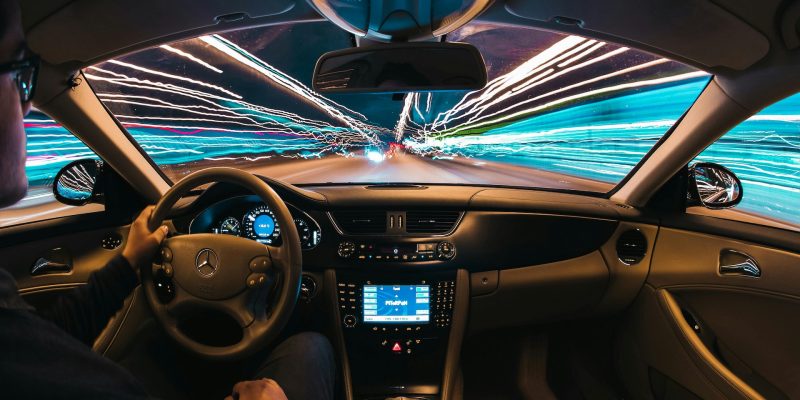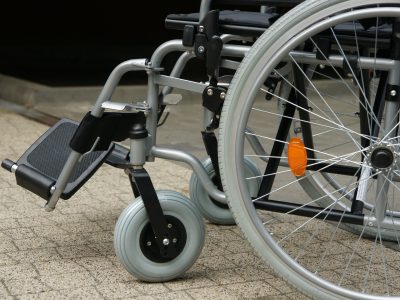by Jennifer Balzer and Anatol Kuleshov
Owning a driving license is crucial for many people, even existential for some. In Germany, the automobile industry wields significant influence, and the country is famous for being the only one in the world without a maximum speed limit on its highways. However, obtaining a driving license can be quite expensive, and even if you already have a license from another country, it might not be legally valid here. As with many bureaucratic matters, the driving license process in Germany is notoriously complicated. We try our best to simplify it for you. As we are both born and raised in Nuremberg, we also went through the driving school process here and can share firsthand insights into obtaining a driving license.
There are different types of driving licenses for all different types of motorized vehicles. (Fun fact: In Germany, you even have to pass theoretical and practical tests in primary school to get a license for riding a bicycle! This isn’t legally required, but it may be a way for authorities to familiarize young kids with German bureaucracy..?) Most people start driving school at the age of 17 or 18 since you can drive a car independently from age 18. At 17, you are allowed to drive if accompanied by a legal guardian (“begleitetes Fahren”). Some young people choose to get a motorcycle license, which is possible from age 15, which makes sense for those living in rural areas without access to public transport or whohave to regularly go long distances, for example to take certain sports classes.
From our personal experience, we can definitely say, that driving schools are EXPENSIVE. The German driving license is one of the most expensive ones in the world since it usually costs €3000-5000 in total.The process starts with registering at a driving school and applying for a driving license. After that you must take a vision test (often free of charge) to determine if you need glasses while driving, and a first aid course (about €50). Once you’ve gathered all your documents (ID, passport photo, driving school name, vision test certificate, and first aid course certificate) you must visit your local driver’s registration office (“Führerscheinstelle”). This should be done early in the process, as bureaucracy in Germany can be veryy slow. Then you start taking theoretical lessons to learn driving rules, like the meanings of different traffic signs. The theoretical test costs €25, and you must answer 30 out of about 1200 questions. While preparing for this test, you may (in most driving schools) start taking practical driving lessons. A certain number of mandatory lessons are required, such as driving in the city (“Stadtfahrt”) or on the highway (“Autobahn”). Depending on your driving skills, you may need additional lessons, costing around €80-100 each, depending on your driving school. After passing the theoretical exam and completing all mandatory lessons, you can take the practical exam (€130) at the TÜV (“Technischer Überwachungsverein”). This is a 45-minute car ride, together with your driving instructor and an examiner who will assess your driving skills and ask some technical questions about the car. You will receive your results immediately. Many people take the practical exam even though they don’t feel confident or safe while driving, due to the high cost of lessons. However, if you fail, you must take some more lessons and pay the €130 exam fee again, in order to retake the exam. This is a significant issue, as 42% of students failed their practical driving exam in 2023. On the bright side though, Germany is one of the safest countries for driving.
If you already have a foreign driving license, the regulations for using it in Germany vary widely, depending on the country where your license has been issued and the length of your stay. If you have a valid license from an EU (European Union) or EEA (European Economic Area) country, you can legally use it until it expires, regardless of how long you stay or if you become a resident in Germany. If your license is from a non-EU or EEA country, you must check the specific rules, as there are numerous regulations for different cases. Generally, if your stay is under six months, you can use your license regardless of where it was issued, though you might need a translation. For stays longer than six months, you need a driving license issued by the Federal Republic of Germany. Depending on where your original license was issued, you might need to take some or all of the German driving tests, including the vision test and first aid course. The requirements vary not only by country but also by individual cases. For example, if you’re from the U.S., the rules depend on the state you are from. For U.K. citizens wanting to convert their licenses into a German one, the process is rather ‘easy’ and no exams are required. If any of these situations apply to you, you may visit your local driver licensing authority to get specific advice.
This article is not intended to provide exhaustive information about your specific driving license situation but to give an overview of the most important aspects. We want to introduce you to the topic, as it is highly relevant in daily life and can be a significant issue for foreigners who do not know about the ‘six-month rule’. Also it shows once again how complex, confusing, and frustrating German bureaucracy can be. And for what it’s worth, it’s just as frustrating for us Germans!
If you want recommendations for driving schools in Nuremberg: we went to “Fahrschule Thore Stumpf” and “Fahrschule Die Drei”. We are both satisfied with our experience and would recommend these to you. If you consider going to “Fahrschule Thore Stumpf”, I especially recommend to you, going to Mohamad Sayfadin, he is patient and very good at his job, I truly miss him!
Sources: personal experience, official website of the German Federal Ministry for Digital and Transport (bdmv.bund.de)















